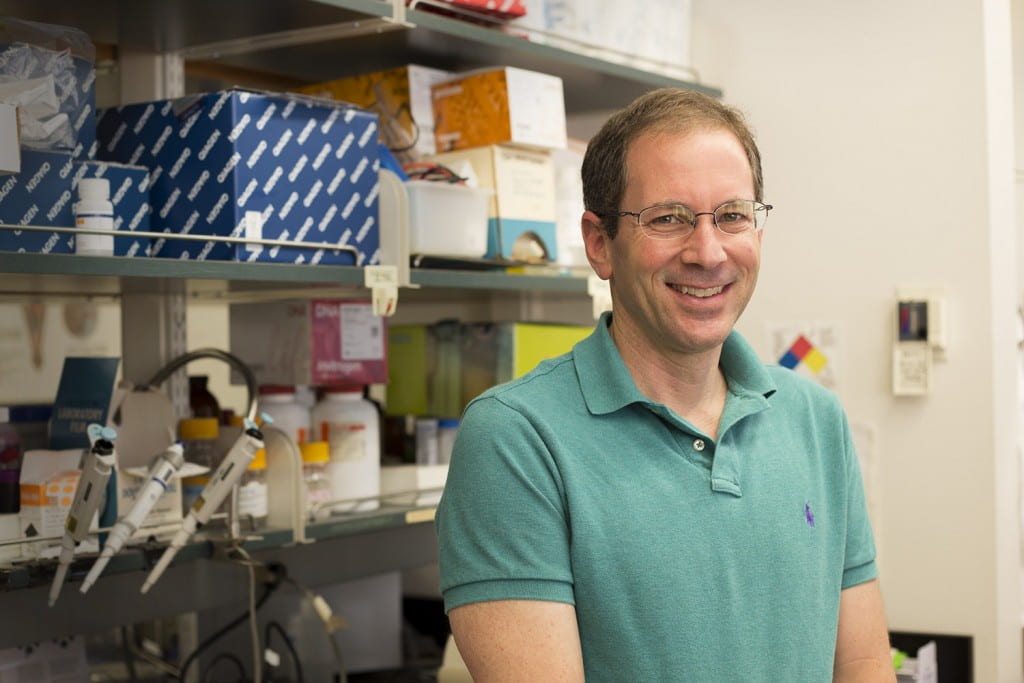Most adults can remember their childhood dream job and their aspirations to become the next great sports star, ballet dancer, veterinarian or teacher.
For Erik Herzog, professor in the School of Arts & Sciences at Washington University in St. Louis, he always knew that he wanted to be a scientist, but more specifically a scuba-diving scientist.
“I grew up in Wisconsin, watching TV specials about Jacques Cousteau, the guy who invented scuba diving,” Herzog said. “I thought that was the best thing in the world, that you could go and discover things by just visiting places that people hadn’t visited before.”
However, unlike many childhood dreams that never come to be, Herzog made his dream a reality. After graduating from Duke University in North Carolina, Herzog took his first job as a professional scuba diver in Antarctica.
“I never actually got in the water,” Herzog said. “When I arrived, the person I was replacing had died in a diving accident, so I was a scuba tender. That was my first job out of college.”
After working as a scuba tender in Antarctica, Herzog was hired as a science diver by the University of Wisconsin. He then pursued research on horseshoe crab vision and biological rhythms in marine snail eyes earning his PhD in Neuroscience from Syracuse University and a postdoctoral fellowship at the University of Virginia.
“Gradually my interests became more refined,” Herzog said. “[My research] became neuroscience of marine organisms. Now, it’s transformed so that I don’t even work on a marine organism any more.”
The narrowing of his research brought him to Wash U in 2000, studying the biological clocks of organisms and how they interact with their environment on a molecular level. However, Herzog wanted his research to extend beyond the walls of the university.
Working alongside the Institute for School Partnership as one of its faculty fellows, Herzog has spearheaded an initiative to create a neuroscience pipeline for students in the St. Louis region.
“Nationally, we don’t compete well against other countries in the sciences,” Herzog said.
“Understanding how we think, learn and move (neuroscience) is naturally interesting to students regardless of their science background.”
In order to counteract these trends, Herzog has partnered with the ISP and other community organizations to help bring K-12 students more opportunities to engage with science.
As co-director of the Neuroscience Graduate Program at Wash U, Herzog encourages his students to engage with the community by holding two community events (Health Fest and the Amazing Brain Carnival) each year at the St. Louis Science Center. At these events, graduate students present their neuroscience research in fun and engaging ways to visitors of all ages.
Herzog said that these types of opportunities teach graduate students how to communicate their research to the general public, all while engaging young learners in the neuroscience field.
“Informal science education like this gets kids started. It’s shows like Myth Busters that inspire them to think about discovery.” Herzog said. “We provide a similar introduction to the sciences through our programs.”
Additionally, Herzog helps run the St. Louis Area Brain Bee, a spelling-bee style competition that tests high school students in their knowledge of neuroscience.
“One of our goals with the Brain Bee is to get to know students through repeated interactions. We’ve watched high school students develop, and have been able to provide them with advice on how to think and succeed in their studies.”
Herzog was recently awarded a new grant by the National Institute of Health to give two-year research experiences to undergraduate students interested in the neurosciences. This will complete the St. Louis Neuroscience Pipeline, providing access to cutting-edge discoveries about the brain to students from kindergarten through graduate school.
“Those of us who have chosen science as a career, recognize it as a really fun job,” Herzog said. “We recognize that we can make a difference in people’s lives and how things are done around our communities and our country, and I want to be able to share that message with students.”
September 2015 | by, Gennafer Barajas
